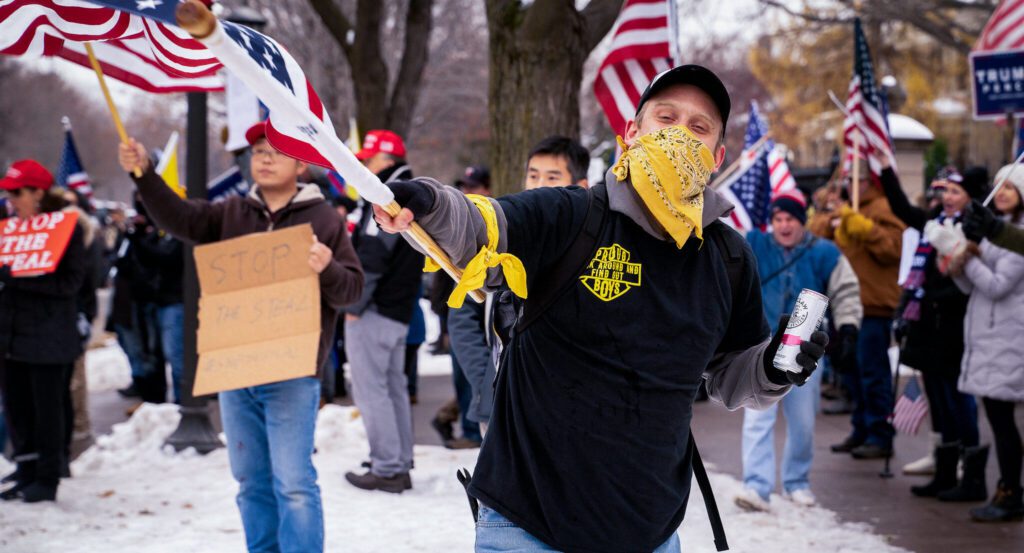The article discusses Donald Trump’s influence on the global far right during his second term, particularly focusing on the rise of “Trumpism” and its implications for white Christian nationalism (WCN). It highlights how Trump’s embrace of white nationalist ideologies has strengthened extremist movements both domestically and internationally, framing him as a pivotal figure who legitimizes and emboldens these groups.
WCN merges white supremacy and xenophobia, advocating for a societal structure based on racial purity. This ideology fears demographic change, often invoking conspiracy theories like the “Great Replacement,” which claims that non-white populations threaten white dominance. Proponents of WCN push for the establishment of white ethnostates and promote “metapolitics,” aiming for cultural shifts that precede political changes.
The article emphasizes that Trump’s narrative and actions, including his pardon of January 6 Capitol rioters, have further normalized extreme right rhetoric and violence as acceptable means to uphold a patriarchal order. This ideology has spread beyond the U.S., influencing far-right movements globally, adapting to local contexts while sharing core themes, such as the defense of “traditional values” and rejection of pluralist democracy.
Overall, Trump’s role is depicted as both symbolic and catalytic, positioning him as a central figure in a transnational network of far-right ideals and strategies, which poses significant challenges to liberal democratic norms worldwide.



